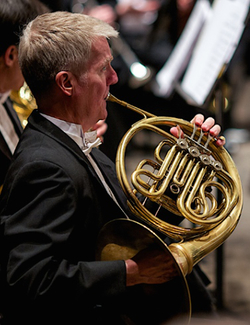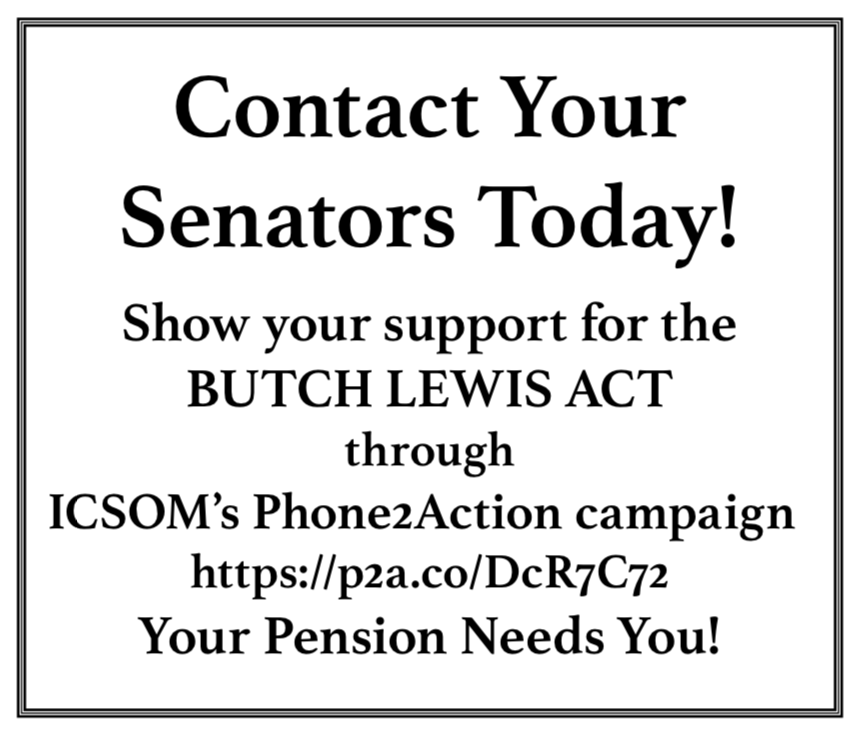
Photo credit: Terry Johnston
In 1858, during a campaign speech for the US Senate, Abraham Lincoln stated, “A house divided against itself cannot stand,” referring to the need for our country to agree about the slavery issue—or face destruction. While he lost that specific election to Stephen A. Douglas, we know that Lincoln eventually was victorious, both in winning the presidential election two years later and (posthumously) having the thirteenth amendment become law in 1865, making slavery illegal in the United States.
In 2007, I heard similar inspiring words from a speaker the first time I attended an AFM player conference annual event. That conference, of the Regional Orchestra Players’ Association (ROPA), was held in San Francisco and included information about the labor history of the city. Until that time, I was unaware of the violent past experienced by those seeking to gain rights for the working class. That discovery provided me with a deeper appreciation for all who came before me and paved the way for the rules we currently have, ranging from being able to bargain a fair contract to having our voices represented and heard.
To date, I have attended nine ICSOM conferences and nine ROPA conferences, and last summer in Boston I spoke at the Theatre Musicians Association (TMA) annual conference. In 2020, I look forward to attending my first Organization of Canadian Symphony Musicians (OCSM) conference, which will be held in Regina, Saskatchewan, and I hope to attend a Recording Musicians Association (RMA) conference some day. It is important for the vitality of these organizations to have annual gatherings, share and learn together, and subsequently pass along information to our rank-and-file members.
This fall, ICSOM embarked on a new venture in hiring the Washington DC-based firm Phone2Action to provide us with the tools to launch our own online lobbying campaigns. Our first, to promote the Butch Lewis Act, began this October, and continues today. There will be other legislation that ICSOM will support, no doubt, and we will be calling upon our membership to give one minute of their time to participate.
Just one minute of your time. In the time you have read this article so far, you could have already accomplished this easy task!
With just a few strokes on your keypad, you can reach the politicians of your state simply by entering your zip code. By completing a few more entries, you can be an activist in a way that would have taken others much longer in the past.
A letter has already been written for you; however, if you wish to make adjustments, the option of creating a personalized message is provided. This link to takes you directly to your Senators.
So why did I support the Butch Lewis Act? It would appear that I don’t have skin in the game, since my orchestra does not participate in the AFM-EPF and my state’s senators already support this legislation. In fact, one of them, Michigan Senator Debbie Stabenow, even co-authored the bill. Why should I bother supporting ICSOM’s online campaign when it seems to have no direct effect upon me?
I supported it because it was the right thing to do. I gave one minute of my day to support the musicians of other ICSOM orchestras, orchestral musicians of ROPA, touring musicians of TMA, recording musicians of RMA, and millions of Americans who participate in multi-employer pension plans. In addition, I have shared the information on social media to encourage others to follow suit.
Know too that the government’s legislative committee will look at the total number of supporters the bill has in all states. Each of our individual senators will be gauging the support for this bill before making their decision about how to vote. It is vital for them to realize that the Butch Lewis Act is important to us.
While Abraham Lincoln was not the first person to coin this phrase about unity, it still rings true today. Combined activities are noticed and heard. Collective actions have strength and power.





